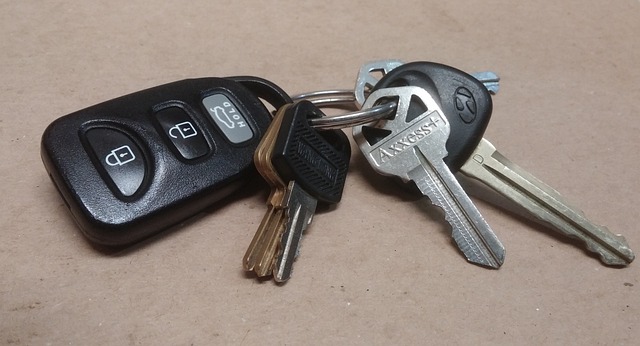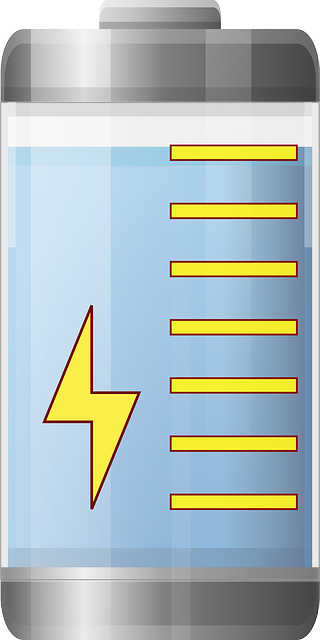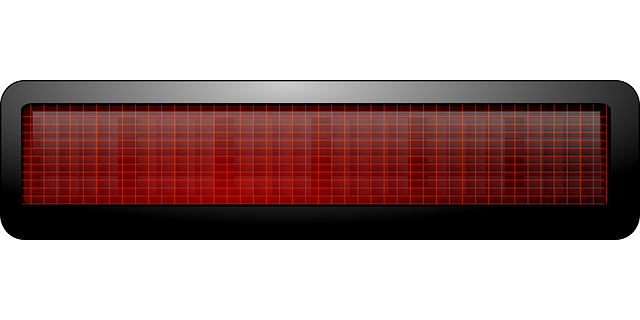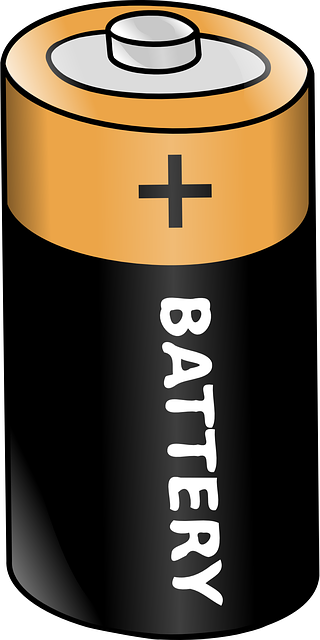The article emphasizes the urgent need for responsible handling of button batteries, commonly used in various devices, due to their environmental and health risks when improperly disposed of. These batteries contain toxic substances that can harm aquatic ecosystems and may cause injury if ingested by humans or animals. To combat this, it's crucial for event organizers to establish clear collection points for button batteries at recycling events, accompanied by educational initiatives and informative signage about proper disposal. Collaboration with local waste management authorities and battery recycling facilities is necessary to leverage advanced processing technologies for higher recovery rates and minimal environmental impact. Event planners should partner with committed recycling entities, ensuring readiness for the expected volume of e-waste. The integration of educational workshops on correct handling aids in enlightening attendees and fostering sustainable practices. Advancements in battery recycling facilities have led to sophisticated processes that recover valuable metals, promoting a circular economy and reducing environmental risks. Public education campaigns are vital for raising awareness about the importance of proper disposal and encouraging community involvement. The success of such events is measured by the volume of waste collected, engagement levels, and the effectiveness of educational efforts, with continuous improvements made through feedback and logistical analysis for future events. Key performance indicators (KPIs) are essential for evaluating the event's impact on landfill diversion and environmental protection.
2023 marks a pivotal year for environmental stewardship, with a heightened focus on sustainable practices. Among the most pressing ecological concerns is the responsible disposal and recycling of button batteries, which pose significant environmental risks. This article offers seven actionable tips for hosting effective recycling events tailored to these small but hazardous items. From grasping their environmental impact to implementing innovative collection methods, partnering with local facilities for e-waste management, and educating the community, we’ll navigate the intricacies of button battery recycling. Additionally, we’ll explore the latest recycling techniques and discuss how to measure the success of your event for ongoing improvement. Join us in this mission to safeguard our environment, one button battery at a time.
- Understanding the Impact of Button Batteries on the Environment
- Proper Collection Methods for Button Batteries
- Partnering with Local Recycling Facilities for E-Waste Management
- Educational Initiatives to Raise Awareness on Button Battery Recycling
- Innovative Recycling Techniques for Button Batteries
- Organizing Community Collection Events Specifically for Button Batteries
- Measuring the Success of Your Recycling Event and Future Planning
Understanding the Impact of Button Batteries on the Environment

The environmental impact of button batteries, a critical component in countless devices from remote controls to hearing aids and children’s toys, cannot be overstated. These small but potent power sources present a significant environmental challenge due to their lithium content, which can cause ecological harm if improperly disposed of. When discarded irresponsibly, button batteries can find their way into waterways, causing harm to aquatic life and ecosystems. Their alkaline composition reacts with environmental acids, leading to toxic by-products that disrupt the natural balance. The issue is compounded as these batteries are often mistakenly viewed as harmless due to their size, leading to inadequate disposal practices. It’s imperative for event organizers and participants to implement responsible recycling and disposal methods for button batteries. Educational initiatives at recycling events can foster awareness about the proper handling of these items, reducing their negative environmental impact. By promoting the collection and recycling of used button batteries, we can mitigate the risks associated with their disposal, safeguarding our environment for future generations. Event planners should consider battery collection as a key component of their sustainability efforts, providing clear instructions and accessible disposal options to attendees. This proactive approach not only addresses the immediate environmental concerns but also sets a precedent for responsible consumption and waste management within communities.
Proper Collection Methods for Button Batteries

When organizing recycling events with an emphasis on button batteries, it’s crucial to implement proper collection methods to ensure these small but potent cells are handled safely and effectively. Button batteries, commonly found in household items like watches, hearing aids, remote controls, and toys, contain chemicals that can cause severe burns if ingested or improperly disposed of. To facilitate their responsible recycling, clear and accessible collection points should be established. These points must be clearly labeled as “Recycling for Button Batteries Only,” using distinct signage to avoid confusion with other types of batteries. Additionally, providing adequate training for volunteers and staff involved in the collection process is essential. They should understand the hazards associated with button batteries and the importance of their proper segregation from other waste streams. Collection containers should be designed to prevent battery leakage, which can occur if they are not stored in the correct conditions. By adopting these measures, events can contribute significantly to the reduction of environmental contamination and potential harm to both humans and wildlife that might otherwise arise from the improper disposal of button batteries. Further, it’s advisable to collaborate with local waste management authorities and battery recycling facilities to ensure that collected button batteries are processed in accordance with state-of-the-art technologies, thereby maximizing their recovery and minimizing environmental impact.
Partnering with Local Recycling Facilities for E-Waste Management

When organizing an event with electronic elements, it’s crucial to consider the environmental impact of e-waste. Partnering with local recycling facilities can streamline the disposal and recycling process for e-waste, including items containing button batteries. These facilities are equipped to handle various types of electronic waste responsibly, ensuring that hazardous materials are managed correctly and valuable resources are recovered. By establishing a partnership, event planners can arrange for on-site collection or drop-off points, making it easy for attendees to dispose of their e-waste properly. This not only reduces the carbon footprint associated with your event but also promotes a culture of sustainability among participants. It’s essential to vet potential recycling partners to guarantee they adhere to environmental standards and have a proven track record in e-waste processing, particularly for items containing button batteries which require special handling due to their toxic contents when discarded improperly. By doing so, you can contribute to a greener future while also fulfilling your event’s waste management needs. Coordinating with these facilities in advance allows for the preparation of necessary equipment and staff to handle the expected volume of e-waste from your event, ensuring a smooth and environmentally sound process. This proactive approach not only aids in compliance with local regulations but also sets a positive example for attendees to follow beyond the scope of the event itself.
Educational Initiatives to Raise Awareness on Button Battery Recycling

button batteries play a crucial role in various everyday items, from hearing aids and remote controls to children’s toys and watches. However, their small size belies the environmental impact of improper disposal; they can cause significant harm to waterways and wildlife if not recycled properly. To mitigate this issue, educational initiatives are being launched globally to raise awareness about the importance of button battery recycling. These initiatives often target both manufacturers and consumers, emphasizing responsible handling and highlighting the availability of recycling programs. By partnering with environmental organizations, these campaigns aim to inform the public about the potential dangers posed by discarded batteries and provide clear instructions on how to recycle them. For event organizers looking to incorporate sustainability into their activities, hosting workshops or seminars centered on the proper disposal of button batteries can be both enlightening and impactful. Such events not only educate attendees but also foster a community-wide commitment to safeguarding the environment from these potent yet perilous power sources. By integrating these educational initiatives into recycling events, we can collectively work towards a safer planet, ensuring that button batteries are disposed of in an environmentally sound manner.
Innovative Recycling Techniques for Button Batteries

As electronics become more pervasive in our daily lives, the disposal of small batteries, particularly button batteries, poses a significant environmental challenge. Innovative recycling techniques for button batteries are essential to address this issue, as these tiny power sources can cause serious harm if ingested and contribute to resource depletion and pollution when discarded improperly. Advanced recycling facilities are now employing novel processes to recover metals from used button batteries, which not only mitigate environmental risks but also promote a circular economy. These methods involve precise separation techniques that can differentiate between the various types of metics used in button batteries, such as zinc, alkaline, and lithium, thereby maximizing recovery rates. The development of these recycling technologies is critical for sustainable waste management systems, ensuring that the materials within these batteries are reclaimed responsibly and efficiently, minimizing their environmental footprint. It is through the implementation of such sophisticated processes that we can transform the way we handle electronic waste, making a significant stride towards a more sustainable future. Consumers and manufacturers alike play pivotal roles in this initiative by adopting responsible practices and prioritizing the proper disposal and recycling of button batteries to safeguard our ecosystems.
Organizing Community Collection Events Specifically for Button Batteries

Organizing community collection events specifically for button batteries is a critical initiative to prevent environmental contamination and protect public health. These small but potentially hazardous items, often found in household electronics and toys, can pose serious risks if disposed of improperly. When recycled properly, they can be safely refined and reused, mitigating the environmental impact and ensuring that hazardous materials do not leach into soil and water systems. To successfully organize such an event, it’s crucial to collaborate with local governments, electronics manufacturers, and waste management companies. These partnerships facilitate proper collection methods and recycling channels for button batteries. Education is also a key component; inform the community about the importance of recycling these items through clear communication campaigns that highlight the environmental and safety concerns associated with improper disposal. By providing convenient collection points, clear instructions on how to prepare batteries for recycling, and offering incentives for participation, communities can significantly increase their button battery recycling rates. This not only contributes to a cleaner environment but also promotes responsible consumption and waste management practices that can be sustained over time.
Measuring the Success of Your Recycling Event and Future Planning

Measuring the success of a recycling event, particularly one focused on collecting button batteries, involves several key performance indicators (KPIs). To begin with, quantify the volume of battery waste collected and compare it to your targets. This data not only showcases the environmental impact of the event but also its efficiency in diverting potentially hazardous materials from landfills. Additionally, assess the participant engagement by evaluating attendance rates, feedback forms, and social media metrics. Engaged attendees are more likely to adhere to proper recycling practices post-event, amplifying the long-term impact of your initiative. Ensure that you have clear and accessible information on the importance of recycling button batteries due to their high risk of causing harm if ingested by children or pets. This educational aspect is crucial for fostering a culture of responsible disposal.
For future planning, consider both the logistical successes and areas for improvement. Reflect on the site’s accessibility, the efficiency of waste sorting processes, and the availability of recycling resources. Use this data to refine your event strategy for subsequent years. Collaborate with local recycling centers and environmental groups to stay abreast of best practices and technological advancements in battery recycling. By leveraging these partnerships, you can enhance the collection methods, perhaps by incorporating innovative technologies designed specifically for safely handling button batteries. Remember to gather feedback from participants and volunteers to inform your future event planning. This will not only improve participant satisfaction but also ensure that the event remains effective in achieving its environmental goals.
2023 presents a pivotal opportunity to prioritize environmental stewardship through responsible recycling initiatives, particularly concerning button batteries. The insights shared in this article underscore the importance of understanding the environmental impact of these small but potent devices and outline actionable steps for effective collection, partnership, education, and innovation in their recycling process. By implementing the seven tips outlined—from mastering the proper collection methods to engaging with local facilities and the community at large—we can significantly reduce the hazardous footprint they leave behind. Let’s commit to making this year a benchmark for button battery recycling, ensuring that our collective efforts contribute positively to a greener future.
